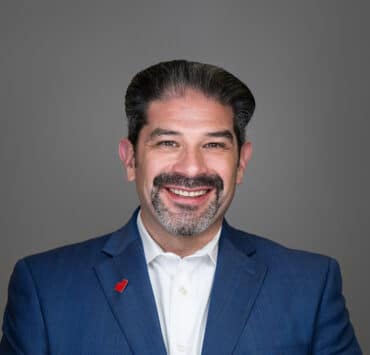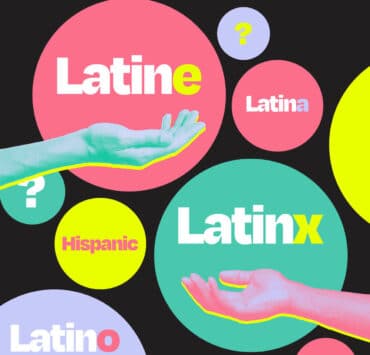|
Getting your Trinity Audio player ready...
|
Juan Jose Pajon envisions a world in which technology leaders are not techies. “We have to stop thinking about ones and zeros and start thinking about business, productivity, efficiency, and about how we create new revenue streams and how we transform the way we work,” Pajon says, business technology global senior vice president at Grupo Bimbo. He believes technology leaders who place a premium on processing power will never earn a seat at the table in the C-suite, relegated to heading up cost centers that simply keep the lights on.
Pajon knows what it’s like not to be a techie. Born and raised in Buenos Aires, Argentina, he didn’t pursue a career in technology, but rather earned an accounting degree from the University of Buenos Aires.
Pajon was working as a tax auditor when Oracle came calling. “They wanted a tax expert who could make sure all their products were suitable in different countries in terms of X calculation, payments, invoices, financial statements, legal reports,” Pajon says. He may not have known it at the time, but his transformation from finance to technology was underway.
He stayed with Oracle for thirteen years, ultimately becoming head of applications strategy for Latin America. His transformation continued when he jumped from the vendor side of technology to the customer side by joining General Electric. There, he led the corporate IT team for South America’s Spanish-speaking countries. Although a challenge, Pajon never felt out of his depth.
“As a corporate IT leader, you need to deal with infrastructure, telecommunications—stuff I never worked on or studied at the university. This was the excitement and the career growth I was looking for.”
Juan Jose Pajon
“Fifty percent of what I was doing at GE I learned at Oracle, and the other 50 percent was totally new,” he says. “As a corporate IT leader, you need to deal with infrastructure, telecommunications—stuff I never worked on or studied at the university. This was the excitement and the career growth I was looking for.”
In 2018 Grupo Bimbo asked him to lead its application space worldwide. “It was an interesting job offer because I was going to the biggest bakery in the world and it was no longer a Latin America responsibility, but a global one,” the executive says. At the time, Grupo Bimbo was poised to begin the world’s largest Oracle cloud implementation. “Whether it was a coincidence or not, everything I’d done in my past career prepared me for this challenge,” he says.
Pajon was now leading a global organization for a company that was not only in the service sector but also a manufacturer and distributer. Eight months later, he was tapped to lead both the infrastructure and cybersecurity organizations at Grupo Bimbo. “I saw a very good opportunity to complete my transformation as a complete IT professional. Adding infrastructure and cybersecurity and everything I’d done already put me in a position as a full-fledged CIO,” he says.
He was recognized as Mexico CIO of the Year in 2021, he’s considered a top ten influencer in Latin America for digital transformation, and in 2023 he was awarded Business Technology Leader of the Year. Individual accolades aside, Pajon points out that he represents a large team and is proudest of Grupo Bimbo’s advancements in technology, innovation, and transformation.
“We live and breathe sustainability. It’s now in our DNA. It’s the way we do business.”
Juan Jose Pajon
“I want the new generations and the market to know that Grupo Bimbo, which is a bakery, is working on blockchain, Web3 technology, B2B and B2C, exploring AI, and doing cool stuff on the metaverse,” he says. “You usually associate these things with Microsoft, with AWS [Amazon Web Services], or some other company.”
Grupo Bimbo—which has 214 bakeries worldwide and bakes and distributes over 100 brands like Takis, Entenmann’s, and Little Bites—was founded in Mexico City in 1945 promising superior quality products and efficient service. Today, as Grupo Bimbo strives to fulfill these promises, its focus is on sustainability. “Our strategy is bake for you, bake for life, bake for nature,” Pajon says.
Sustainability is part of Grupo Bimbo’s core strategy, and not just because it’s trendy. “We live and breathe sustainability. It’s now in our DNA. It’s the way we do business,” he explains. Nearly 100 percent of Grupo Bimbo’s energy consumption derives from renewable sources, its transitioning to compostable and biodegradable packaging, and has a fleet of four thousand electric vehicles. “We’re committed to have net zero carbon emissions by 2050,” he adds.
Looking to the near future, Pajon says AI will radically transform the food and beverage industry. He notes AI has been on everyone’s radar for years, but what AI technologists have accomplished in the past year “is incredible.” Advancements that were expected to unfold over a five-year span were accomplished in just the first half of 2023.
“It’s going to change the way we work, not in the long term but in the short term,” Pajon says. AI will not replace humans but will improve the way they work and where they spend their time.

